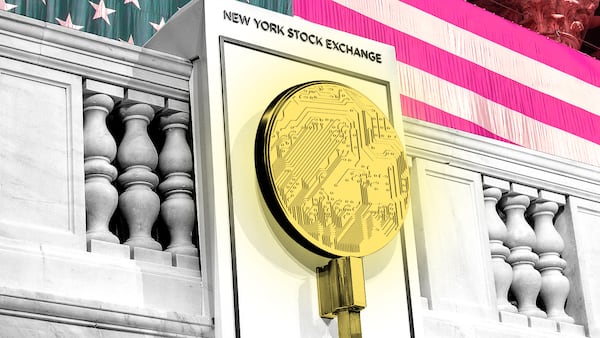- The Bank of England's stablecoin limits received fresh criticism.
- Restricting stablecoin use sends 'terrible signal' to businesses, says member of the Lords.
- The central bank's deputy governor defended the limits in a Wednesday speech.
Pushback is mounting against the Bank of England’s proposal to restrict stablecoin holdings for UK individuals and businesses.
On Thursday, the central bank’s plan, which would limit individual stablecoin holdings to between £10,000 and £20,000, and business to $10 million, received fresh criticism in the House of Lords.
“Does this not send a terrible signal to people who want to base their crypto businesses in the UK?” Lord Ed Vaizey, co-chair of the UK Parliament’s Crypto and Digital Assets All Party Parliamentary Group, asked in a Thursday debate.
Vaizey called on the bank to publish their modelling that justifies the restrictions.
“Transparency matters — especially when the stakes are this high,” he said in a follow up post on social media.
The Bank of England first proposed limiting the amount of stablecoins individuals can hold in November 2023. At the time, it cited concerns that crypto tokens pegged to currencies like the pound could weaken the banking system by draining it of deposits.
In recent weeks the bank said it planned to press ahead with the proposal, eliciting a fresh wave of backlash.
Several crypto firms operating in the UK said the restrictions would put the country at a disadvantage and that the rules would be difficult and costly to enforce. Critics also argue that other major financial centers, like the US and EU, have not proposed similar caps.
“Consistent hostility to crypto innovation, systematic debanking, and payment rails deliberately squeezed,” Ben Lee, a partner at Andersen, a tax services firm, said.
“This serves no-one’s interest other than the banks, and is a clear message the UK is not open for digital asset business.”
Mounting pressure
The debate comes amid a renewed push from lawmakers to regulate digital assets in the UK.
In August, a parliamentary group co-chaired by Vaizey started working to bring cryptocurrency back to the forefront of the legislative process.
In September, the Financial Conduct Authority, the UK’s markets regulator, opened up a consultation on proposed crypto rules. The same month, the UK and US established a new taskforce, which aims to enhance collaboration on crypto asset regulation and other financial activities.
Pressure for the UK to regulate the crypto industry is mounting. In July, landmark stablecoin regulation in the US spurred a wave of investment, and gave the green light to more financial firms to start leveraging blockchain technology.
Crypto businesses are hopeful that the UK could also benefit similarly from favourable regulation.
“The opportunity for the UK is huge,” Matthew Osborne, Ripple’s policy director for Europe and UK, said. “If the regulatory framework is designed correctly, it can facilitate innovation, enhance financial inclusion and solidify the UK’s position as a competitive global financial centre.”
Only temporary?
The Bank of England has so far held firm on the proposed stablecoin caps, potentially putting a damper on the situation.
“Our focus here is on ensuring the real economy’s continued access to credit, by ensuring the financial system has time gradually to adjust to new forms of digital money,” Sarah Breeden, Deputy Governor of the Bank of England for Financial Stability, said in a speech at DC Fintech Week on Wednesday.
She said there would likely be exceptions to the $10 million cap for large businesses, like supermarkets, and that the bank intends to seek feedback on implementing the limits.
“We would expect to remove the limits once we see that the transition no longer threatens the provision of finance to the real economy,” Breeden said.
How the central bank will come to such a determination, Breeden didn’t say.
Tim Craig is DL News’ Edinburgh-based DeFi Correspondent. Reach out with tips at tim@dlnews.com.









